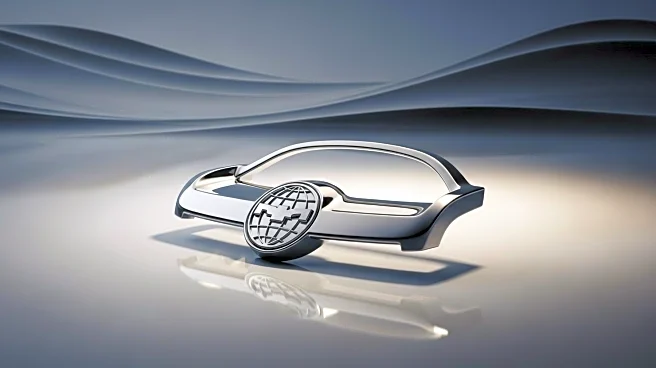What's Happening?
Nissan has experienced a significant drop in global auto sales, falling out of the top 10 for the first time in 16 years. According to MarketLines data, Nissan's sales decreased by 6.0 percent to 1.61 million vehicles in the first half of 2025. This decline has allowed competitors such as BYD and Geely to surpass Nissan, with BYD achieving a 33 percent increase in sales. Additionally, Suzuki has outsold Nissan for the first time since 2004, selling 1.63 million vehicles. Nissan's financial struggles are evident, with a reported loss of ¥15.7 billion (approximately $105 million) between April and June, marking its fourth consecutive quarterly loss. The company faces challenges in its largest market, China, where sales fell 18 percent to 270,000 units, a stark contrast to its peak sales of 720,000 vehicles in 2018.
Why It's Important?
Nissan's decline in sales and financial performance has significant implications for the global automotive industry. The company's struggles highlight the competitive pressures from emerging Chinese automakers and longstanding rivals like Suzuki. Nissan's inability to maintain its position in the top 10 could affect its market share and influence in key regions, including the U.S. and China. The financial losses and declining sales may lead to further restructuring efforts, impacting jobs and production capabilities. As Nissan attempts to revamp its lineup with new models like the Leaf EV and N7 EV sedan, the company's future success will depend on its ability to adapt to changing consumer preferences and market dynamics.
What's Next?
Nissan is taking steps to recover from its recent setbacks by introducing new models and revamping its lineup. In the U.S., the launch of the new Leaf EV and the refreshed Kicks are part of its strategy to regain momentum. The company is also considering the reintroduction of the Xterra SUV. In China, the N7 EV sedan has been launched, and more EVs are planned for release. These efforts aim to boost sales and improve financial performance. However, Nissan will need to navigate ongoing challenges, including competition from Chinese automakers and addressing consumer demand for electric vehicles.
Beyond the Headlines
Nissan's situation underscores broader trends in the automotive industry, such as the shift towards electric vehicles and the growing influence of Chinese manufacturers. The company's struggles may prompt discussions on the sustainability of traditional automakers in the face of rapid technological advancements and changing market conditions. Additionally, Nissan's financial difficulties could lead to strategic partnerships or mergers as it seeks to stabilize its operations and compete effectively.








